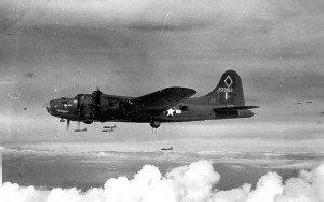The End of the Beginning
On 19 July 1944, Hitler issued an order concerning preparations for the defence of the Reich. It put the German
civilian population on a total war footing and issued instructions for preparations for evacuations of 'foreign
labour' and civilians away from the advancing Soviet Army in the east. It also called for "preparations for
moving prisoners of war to the rear". This prolonged the war for hundreds of thousands of Allied personnel, as
well as causing them severe hardship, starvation, injuries and/or death.
The guns of advancing Russian armies could be heard by the Stalag Luft VI prisoners who were hoping that
the friendly soldiers would overrun the camp in days. However, all of those hopes were dashed when the
guards suddenly told them to get ready to leave at once. Harry “Ginger” Parkes was with Bill and Sid and
recounted the events during and after the journey for the Derby Evening Telegraph many years later.
Along with some Americans, the RAF prisoners were marched from Stalag Luft VI to some railway sidings
where they had to climb into cattle trucks. They were crammed in and the train soon began moving. There
was precious little room and the only sanitation was an old dustbin in the centre of the truck. The train arrived
in Memel, East Prussia (now Klaipėda, Lithuania) late the same day.
Following the Americans, about 200 of them boarded a coastal steamer called the SS Insterberg and were
ordered to go down into the hold only to find that it was already full of men struggling to find a place to sit.
When the men complained to the guards that it was impossible to squeeze another 200 people down into the
hold they were treated to blows from rifle butts and clubs, so down they went. After much pushing and shoving
the new crowd managed to establish a small area each and settled down to wait with the patience that years
of imprisonment instils. The hatch was then battened down so that they were in complete darkness.
The engines started and the boat steamed out to sea where it pitched and rolled, causing many to be seasick.
Occasionally the hatch was opened and a bucket of ersatz coffee (a substitute coffee made from organic
products, including acorns, and often referred to as muckefuck in Germany) was lowered. There was no
sanitation and they were allowed out of the hold only two at a time so the foul air from vomit and urine made it
difficult to breathe and causing them all to be violently ill for most of the journey. The ship docked at
Swinemunde, Northeast Germany (now Swinoujscie, Poland), a naval and merchant port, where the
Americans were ordered out leaving the Brits and allied airmen on board for another night in the stinking hold.
They were allowed off the next morning and herded into rail cattle trucks. Each truck was divided into two
parts: the smaller section had 25-3 0 prisoners crammed in while the larger area was occupied by six guards.
Aircraft engine noise then heralded an attack on
the port by American B17 Flying Fortresses which
caused the German defences to throw up a smoke
screen, engulfing the train. The guards dashed out
and locked the trucks, leaving the prisoners
incarcerated as bombs exploded all around.
Unbelievably, none of the PoWs were injured and
the bombing stopped abruptly so the guards, who
looked clearly angered by the strike, struggled back
into the trucks and the train pulled away. For three
days they travelled in the confined space, taking
turns to stand so that others could sleep.
B17 Flying Fortress
Early in the morning of 20th July, the train halted at a small country station near Gross Tyschow (now Tychowo,
Poland). The men staggered out and stood by the wagons waiting and realised the number of guards had
been increased and organised in two groups, one of which consisted of uniformed 14-1 6 year old boys – they
were members of Hitler Youth. The other group, the guards, made the prisoners stand in line for two hours in
what had become baking sunshine and then handcuffed the PoWs in pairs before pushing them around,
shouting obscenities and holding vicious looking dogs that barked at the hapless mob. A number of spectators,
including some women, gathered and spat at and harassed them, egged on by the guards. One report quoted
the officer in charge of the Luftwaffe escort winding up his men and bystanders by screaming, "these are the
men who bombed your homes and families".
When the Germans tired of this, they ordered the prisoners to march, in step, along the road. After half a mile
or so, soldiers with machine guns lined each side of the road and an officer stood on the running board of his
car with a pistol in his hand. He lifted the gun and fired a shot. It was obviously a prearranged signal as, with
 PAGE 8
PAGE 8